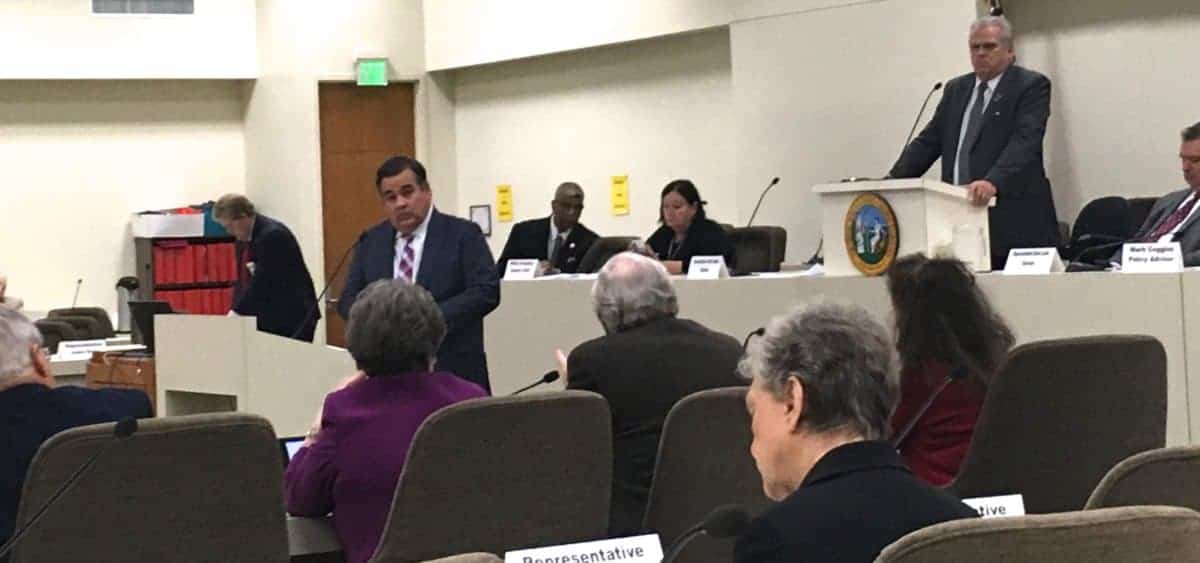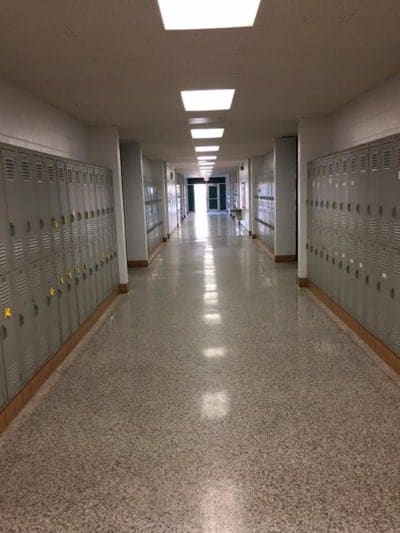It is a stark reality when your General Assembly feels it necessary for all public school students to learn how to control bleeding in order to keep schools safe. It is even more stark when, even though it isn’t explicitly said, that bleeding is likely to come from a gunshot wound.
But here we are.
The House Select Committee on School Safety approved its report to the full General Assembly, along with draft legislation, Thursday, and without talking about guns, it ends up being all about them.
The meeting Thursday began with a presentation by Charlotte-Mecklenburg Schools (CMS) Superintendent Clayton Wilcox. He laid out what the district learned from the school shooting at Butler High School in the town of Matthews.
Lawmakers had many questions for Wilcox, but when asked what he would do to keep guns out of school if he had a magic wand, this is what he said:
“It’s a tough question to answer in North Carolina. I think legislation that perhaps compels people to secure the guns that they have in ways that don’t allow them to find their way into the hands of young people.”
He took pains to say he supported the Second Amendment, but if children who legally weren’t allowed guns couldn’t get access to guns that would be helpful.
Later, Rep. Pricey Harrison, D-Guilford, said she hoped when the school safety committee is formed in 2019 that the group talks more about guns, particularly their safe storage. Rep. John Torbett, R-Gaston, chair of the committee, said the focus this year was on mental health, but he didn’t discount the possibility that guns would be on the agenda in 2019.
This House Select Committee has toured North Carolina as part of its mission to figure out how to keep schools safe. After talking with the people of North Carolina, these are the recommendations it decided on, which can be found on pages 11 and 12 of the report:
-
Further study is necessary to develop a statewide system for mental health screening of school children in North Carolina;
-
Civic responsibility education required in elementary, middle, and high school;
-
Expanded first aid training required for all students, including training in use of automatic external defibrillators and bleeding control (an amendment added training for school employees, as well);
-
Continuation and expansion of the school safety grants;
-
Reintroduce school safety legislation proposed to the General Assembly during the 2017 legislative session;
-
Continue the study of ways to improve school safety through the creation of the House Study Committee on School Safety.
The vote for these recommendations was unanimous. The draft legislation associated with them isn’t going to be filed until the next full session of the General Assembly early in the new year.
The presentation of the recommendations, which don’t have anything to do with guns, contrasted strangely with the presentations heard before the vote. The bulk of the meeting was taken up by Wilcox and the Matthews Police Chief Clark A. Pennington. They spent a long time talking about the shooting at Butler High School — how the police responded, how the school resource officers responded, things done well, lessons learned. But, at its core, the discussion was about how one kid with a gun shot another. And that gun ends up being the elephant in the room.
Wilcox talked about the “see something, say something” policy in CMS, where if students see a gun, they are taught to tell someone. He talked about how the district is going to have to do random screening of students to see if they have guns. The district is paying a lot of attention to what they can do, but they don’t have the power to change law, just respond to what’s already in place. Wilcox told lawmakers that one student told him it’s easier to get a gun than go to the library. That’s the situation currently in place.
The school safety committee was formed in reaction to a series of school shootings that happened in other parts of the country. The shooting at Butler didn’t happen until October, when the work of the committee was well underway. And while it’s well understood that the topic of guns is one that yields serious argument and pushback, it is odd to try to address school shootings or school safety without actually talking much about guns.
We’ll see in 2019 if that is going to happen.



